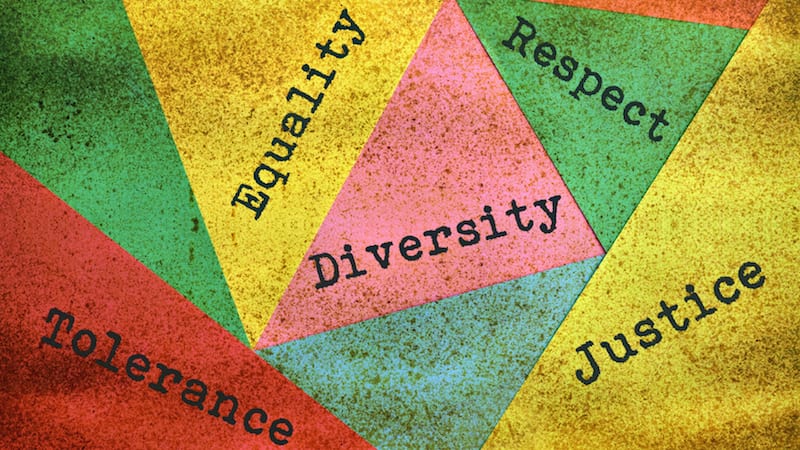Do you know The Rules of the Social Justice Leadership Game?
When you picture history’s greatest examples of social justice leadership, who comes to mind? Mother Theresa? Martin Luther King Jr.? Mahatma Gandhi?
Now, picture Gandhi reclining in a rocking chair binge-watching American Idol.
Martin Luther King Jr. practicing his golf game on the weekends in pursuit of a single-digit handicap.
Imagine Mother Theresa becoming a Guitar Hero champion in her spare time.
Improbable, right?
Agents of social change don’t have personal lives, don’t have hobbies, vices. They’re heroes…saints, right?
Wrong.
Social justice leadership comes in all kinds of packages. The sooner we understand that reality, the more quickly we can identify, follow, and emulate these leaders and work towards meaningful, lasting change.
If you want to see true leadership, put away the airbrush.
I like to call it “airbrushing”…
We have the tendency to walk around brushing over our faults and other people’s, as well. We’re especially good at it when we find ourselves in uncomfortable situations – ones in which we perceive a social injustice taking place.
But part of what makes us turn to the airbrush in uncomfortable situations is our misunderstanding about the rules of engagement. Because we are all playing a grand game. And most of us don’t have a clue how to play it…so let’s dive in and figure it out.
For starters, we’ll deal with the rules of the game. I’ll follow up [next week] with an explanation of the players, and how to win.
The Rules of the Social Justice Leadership Game
Have you ever sat down at a friend’s house for an evening of card games? My radar always goes off when the friend opens with, “The rules are simple.” This is code for “Good luck, you’ll be confused as heck until the second-to-last hand and by then it’ll be too late.”
So, the rules are simple. Not.
The game is a dizzying mélange of Black Jack, Poker, reality television, and boxing.
Confused yet?
1) The Rules of Black Jack.
Certain cards are secret. Others are visible. The visible cards are usually race, sexuality, gender, age, (dis)ability, nationality, veteran status, socio-economic class, access to education, relationship status, size.
The invisible cards are more subtle but have an impact on a player’s performance. They include mental or physical illnesses that aren’t readily apparent, shifting gender or racial identity.
The balance between the visible and invisible plays out either through personal identity or expression, and the perceptions of others. This creates a space for judgment.
As an example, someone might identify as bi-racial and be perceived as a member of only one racial group. I may perceive my friend to be able-bodied and be unaware he is grappling with bipolar disorder.
Based on what we reveal about ourselves (expression) and how we are perceived (perception) we exchange value, or privilege, with one another.
2) The Rules of Poker
This is the best game for illustrating privilege.
There’s a big game in session, someone gets up from their seat and I take over. I inherit their chips and proceed to win or lose them, exchanging them among the people at the table. We can’t buy or earn more chips. We only work with what’s on the table – our privileges.
My value at the table hinges on my ability to deceive my opponents and sense deception – a bluff. But I can’t gain more than what is at the table during that session, and I can’t change the rules of the game.
3) The Rules of Reality-TV
The Social Just Leadership Game has an element of reality television in its playbook. Can you guess how it might manifest?
Factions. The game pits different group membership collectives against each other, making cross-collaboration difficult, if not impossible. The game depends heavily on groups and individuals identifying consistently with their own subordination.
On the flip side, the dominant group never truly claims its identity and is never able to root for the subordinate, or “underdog” groups. To do so would have them voted off the island.
Communities are built through the identification of what the dominant group has that the subordinate groups don’t have…loyalties and alliances are formed and tested, collapse and are reformed. Authentic communication goes out the window, along with meaningful progress.
4)The Rules of Boxing.
I will grant you there is strategy in boxing. But ultimately, it’s your job to knock out your opponent or land so many blows that you outscore them. Not much room for nuance there. In fact, when you see your opponent crumbling, you double down on your efforts to knock them out. If they fall and get back up, you continue your assault until they go down and stay down.
A third party mediator – the referee – may use their own judgment and decide one opponent is overwhelming the other with their power and the match is called. The stronger opponent is declared the winner. The loser is vanquished and leaves the ring. The victor takes on the next challenger, their reputation polished, the other’s, tarnished.
The kicker.
The social justice leadership game’s structure relentlessly refuses to change or reveal itself completely to the players.
It’s true. Some players may find a way to manipulate certain aspects of the game. They may cheat, deceive, ruthlessly seek ways to maintain their perceived status in the game. But no one player will ever know all the rules all of the time.
So, what happens when you’re considering wading into the Social Justice Leadership game and you’re faced with these rules?
For too many of us, we never take a seat at the table or step in the ring. Or worse yet, we wade in ill-prepared for the melé we’re about to join, making ineffectual efforts to be heard and understood. We waste time and precious resources and come away with empty pockets and a black eye.
It doesn’t have to be that way. You can navigate the social justice game, become an effective player…see real, meaningful change happen as a result of your efforts.
In the second part of this article, we’ll dive into the players and explore the showdown between The System and The Players.
If you’d like to have a conversation about the social justice goals you have for yourself or your community contact me.
Take Your Event To The Next Level, Book Jess Today!
Take Your Event To The Next Level, Book Jess Today!
Related Blog Posts
Welcoming back audiences that might be at different comfort levels after the last year?
Welcoming back audiences that might be at different comfort levels after the last year? A different question – What would you keep? March 6th. May 12th. May 15th. We all have dates from the past year that we will remember. Perhaps it was a...
Jessica Pettitt: Championing Diversity and Inclusion as a Keynote Speaker
In the dynamic world of keynote speaking, Jessica Pettitt stands out as a beacon of diversity, inclusion, and transformational change. Her unique approach combines humor, real-life experiences, and actionable insights, making her a sought-after...
First steps to take when building back a more diverse workforce
First steps to take when building back a more diverse workforce Utilize disruption for growth There are a lot of metaphors turned cliches, and sometimes they are worth it. This big city gal moved into Northern California more than a decade ago,...











0 Comments